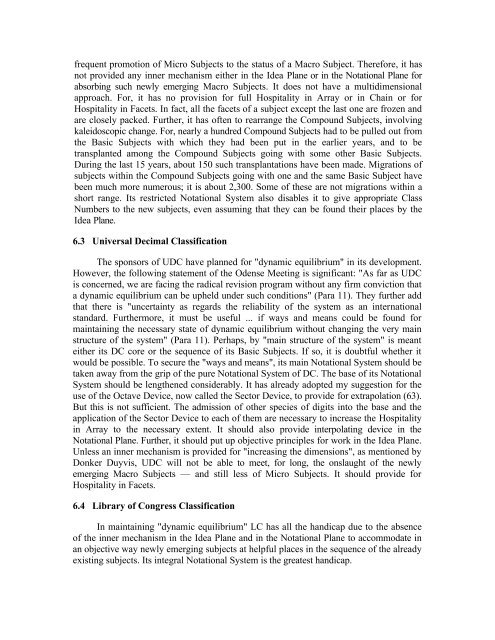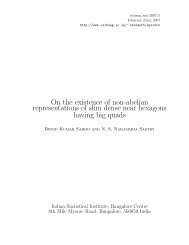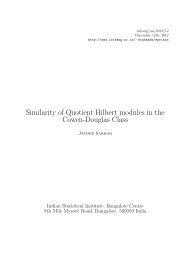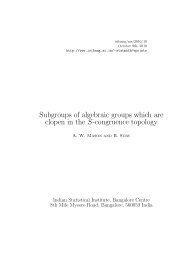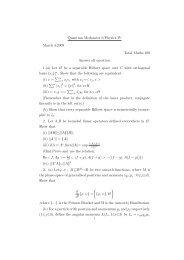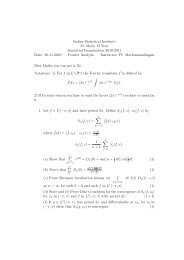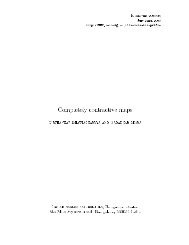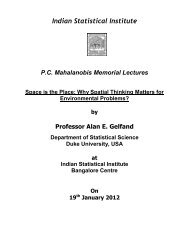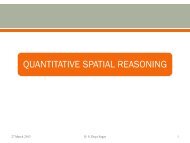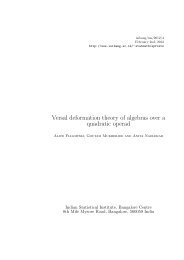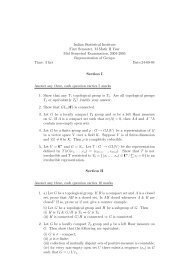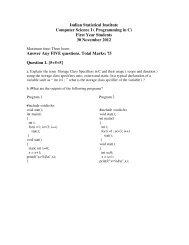CHOICE OF SCHEME FOR CLASSIFICATION - Indian Statistical ...
CHOICE OF SCHEME FOR CLASSIFICATION - Indian Statistical ...
CHOICE OF SCHEME FOR CLASSIFICATION - Indian Statistical ...
You also want an ePaper? Increase the reach of your titles
YUMPU automatically turns print PDFs into web optimized ePapers that Google loves.
frequent promotion of Micro Subjects to the status of a Macro Subject. Therefore, it has<br />
not provided any inner mechanism either in the Idea Plane or in the Notational Plane for<br />
absorbing such newly emerging Macro Subjects. It does not have a multidimensional<br />
approach. For, it has no provision for full Hospitality in Array or in Chain or for<br />
Hospitality in Facets. In fact, all the facets of a subject except the last one are frozen and<br />
are closely packed. Further, it has often to rearrange the Compound Subjects, involving<br />
kaleidoscopic change. For, nearly a hundred Compound Subjects had to be pulled out from<br />
the Basic Subjects with which they had been put in the earlier years, and to be<br />
transplanted among the Compound Subjects going with some other Basic Subjects.<br />
During the last 15 years, about 150 such transplantations have been made. Migrations of<br />
subjects within the Compound Subjects going with one and the same Basic Subject have<br />
been much more numerous; it is about 2,300. Some of these are not migrations within a<br />
short range. Its restricted Notational System also disables it to give appropriate Class<br />
Numbers to the new subjects, even assuming that they can be found their places by the<br />
Idea Plane.<br />
6.3 Universal Decimal Classification<br />
The sponsors of UDC have planned for "dynamic equilibrium" in its development.<br />
However, the following statement of the Odense Meeting is significant: "As far as UDC<br />
is concerned, we are facing the radical revision program without any firm conviction that<br />
a dynamic equilibrium can be upheld under such conditions" (Para 11). They further add<br />
that there is "uncertainty as regards the reliability of the system as an international<br />
standard. Furthermore, it must be useful ... if ways and means could be found for<br />
maintaining the necessary state of dynamic equilibrium without changing the very main<br />
structure of the system" (Para 11). Perhaps, by "main structure of the system" is meant<br />
either its DC core or the sequence of its Basic Subjects. If so, it is doubtful whether it<br />
would be possible. To secure the "ways and means", its main Notational System should be<br />
taken away from the grip of the pure Notational System of DC. The base of its Notational<br />
System should be lengthened considerably. It has already adopted my suggestion for the<br />
use of the Octave Device, now called the Sector Device, to provide for extrapolation (63).<br />
But this is not sufficient. The admission of other species of digits into the base and the<br />
application of the Sector Device to each of them are necessary to increase the Hospitality<br />
in Array to the necessary extent. It should also provide interpolating device in the<br />
Notational Plane. Further, it should put up objective principles for work in the Idea Plane.<br />
Unless an inner mechanism is provided for "increasing the dimensions", as mentioned by<br />
Donker Duyvis, UDC will not be able to meet, for long, the onslaught of the newly<br />
emerging Macro Subjects — and still less of Micro Subjects. It should provide for<br />
Hospitality in Facets.<br />
6.4 Library of Congress Classification<br />
In maintaining "dynamic equilibrium" LC has all the handicap due to the absence<br />
of the inner mechanism in the Idea Plane and in the Notational Plane to accommodate in<br />
an objective way newly emerging subjects at helpful places in the sequence of the already<br />
existing subjects. Its integral Notational System is the greatest handicap.


